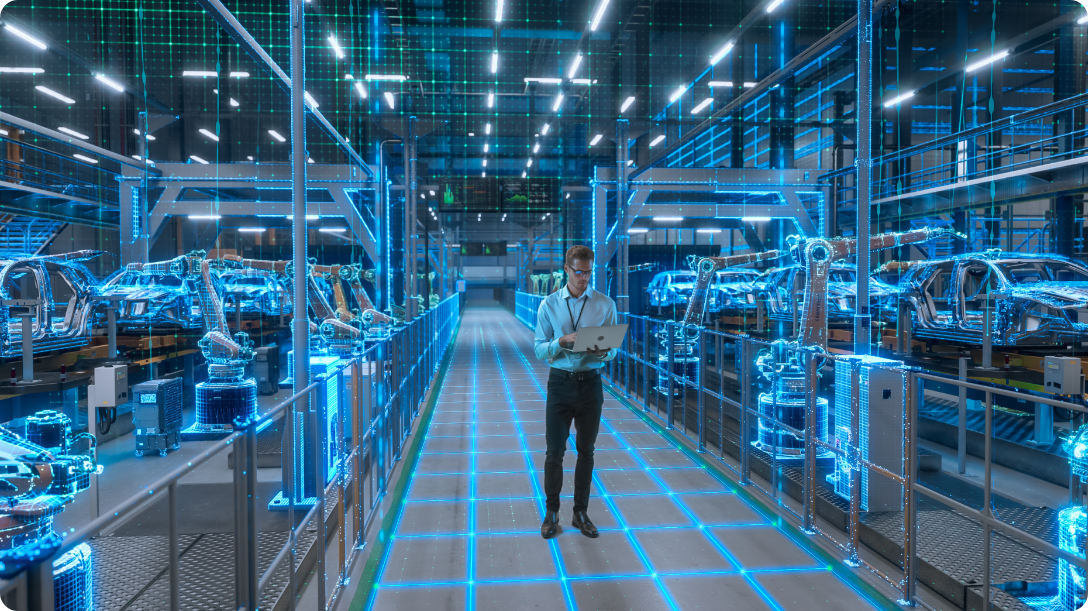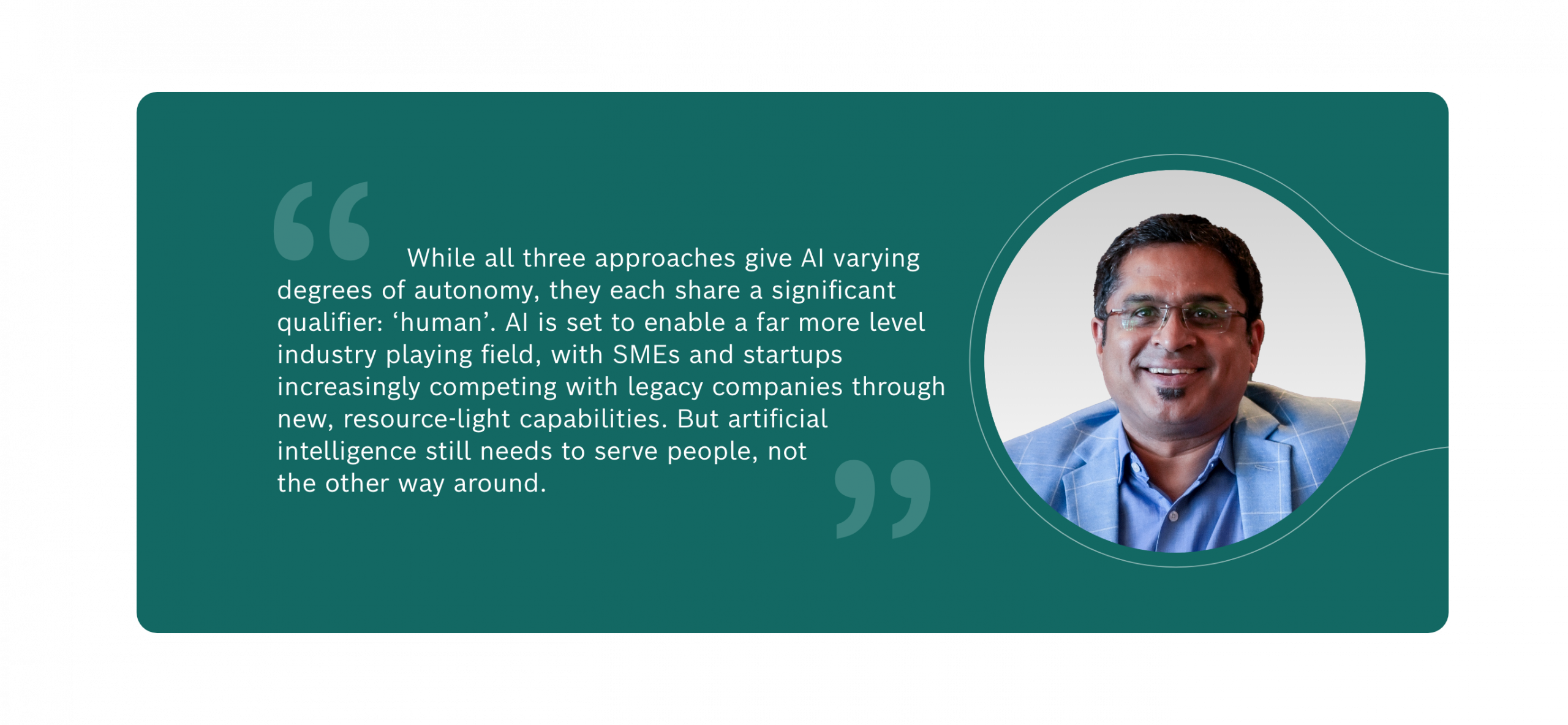Human first, AI next: Debasis Bisoi maps the relevance of ethical AI in manufacturing

Date:September 10, 2025
When it comes to manufacturing, there are two truths we often forget in the rush toward the next AI innovation:
- Manufacturing was always built for humans.
- Manufacturers have been working with AI for decades (since the first computer-assisted design machines in the 70s).
Now, as AI begins to take on more thinking, more decision-making, and more control, the question arises: Is it still human-centric?
Bosch SDS has always viewed AI through a different lens. Across global plants, teams have used AI to build systems grounded in long-term priorities—systems that drive efficiency with accountability, foster innovation through inclusivity, and deliver speed without compromising integrity.
That question is central and in practice for us, across factory floors, training modules, and leadership conversations. We don’t just train AI to optimize production. We shape it to understand the purpose of production, and that begins with a human-first approach.
In an industry where precision and scale matter, Bosch SDS is making AI work harder at asking better questions. Can we trust AI to make bias-free decisions? Can it manage resources sustainably? Can it prioritize human safety?
These are the basis of real systems Bosch SDS is helping design, where intelligent tools support workers, instead of sidelining them. Debasis Bisoi, CEO, Bosch SDS, explains in the full article, “the goal is to build structured collaboration between on-ground staff and subject-matter experts,” so that AI reflects the needs of people who understand the work best.
And yet, having the right tools is only one part of the solution. Building trust in those tools through human-in-command, human-in-the-loop, and human-on-the-loop approaches is a different kind of transformation—one that’s for the long term. This means regular feedback sessions, anonymous insights, and hands-on testing during prototyping; it’s not so much tech adoption as it is tech alignment.
The result is a model of AI adoption that respects regulation, reflects intent, and scales only with clarity. One that bakes responsibility into the architecture. And as AI-focused roles like data labeling and prompt engineering grow, this shift will only deepen.
At Bosch SDS, we’re already seeing the upside of engaging technicians and engineers as co-creators, resulting in smoother rollouts, stronger adoption, and smarter systems that actually solve real problems. The key is a simple thought shift: trust is a culture, not a checkbox. As Debasis says in the article, “The goal of AI is not replacement, but augmentation of human abilities.”

Bottom line: If manufacturing was made for humans, then AI must make it more human than ever before. Read the full article here.

